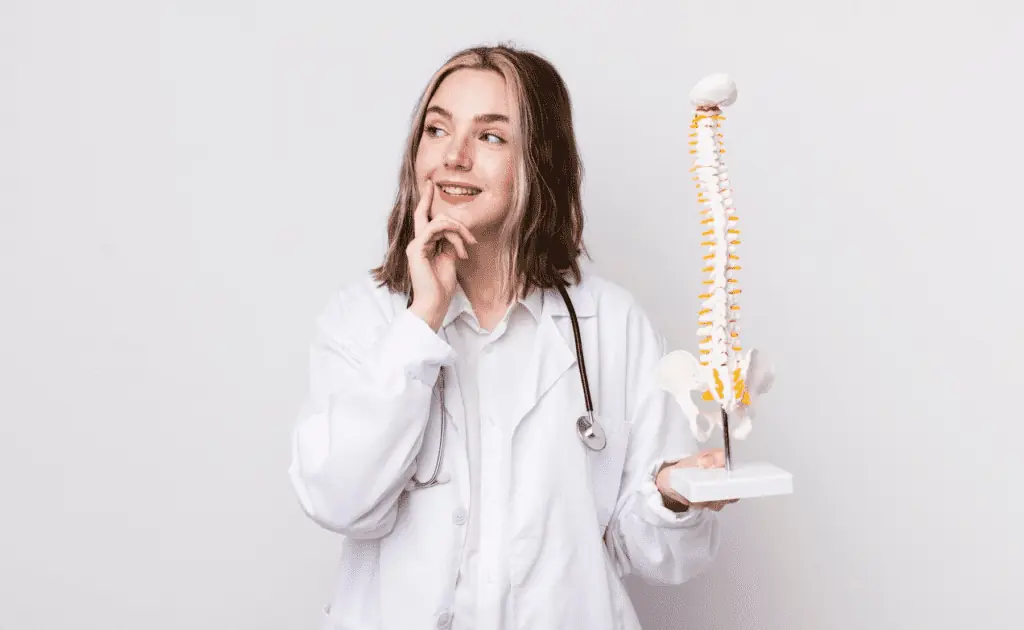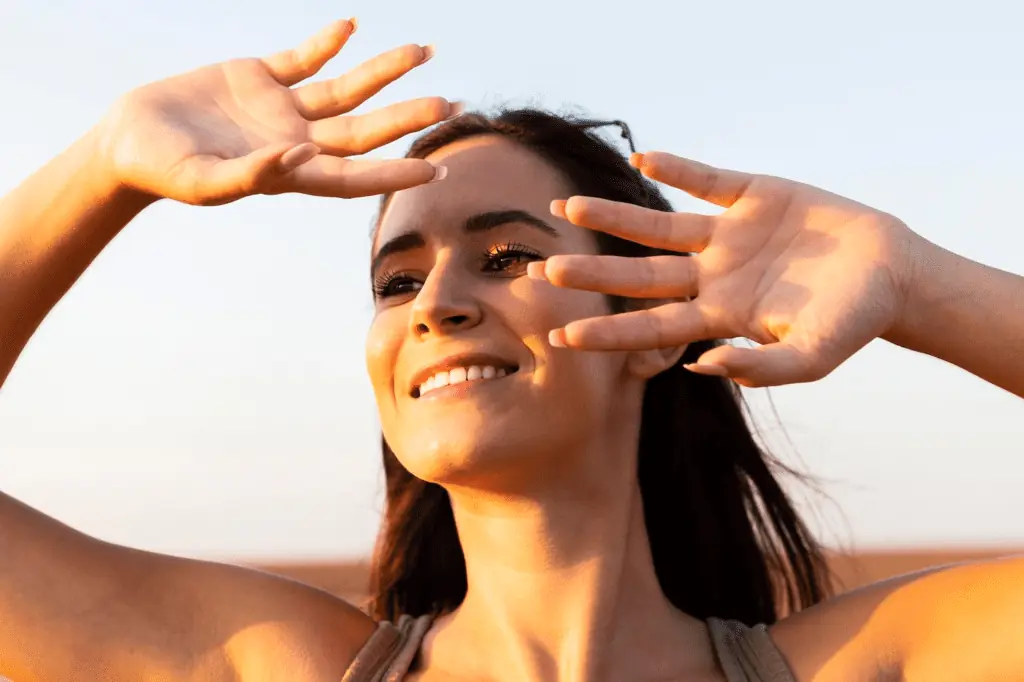
Everyone knows that milk is good for the body, but did you know that vitamin D is the real hero when it comes to strong bones? This unsung hero is crucial for helping your body absorb calcium and build strong, healthy bones. But despite its importance, many people don’t get enough of it. So if you’re ready to improve your vitamin D knowledge, keep reading.
In this article, we’ll break down everything you need to know about this essential nutrient and how to ensure you’re getting enough of it for strong bones and a healthy body.
The Lowdown on Vitamin D
We all know Vitamin D as the sunshine vitamin, but there’s so much more to it than just basking in the sun like a lazy lizard. It’s a crucial nutrient that plays a vital role in maintaining strong and healthy bones. But what exactly is vitamin D, and why is it so important?
Well, for starters, vitamin D is a fat-soluble vitamin found in very few foods. So, if you’re thinking of munching on some cheeseburgers to get your daily dose of vitamin D, think again! The best way to get vitamin D is by exposing your skin to sunlight. Still, we all know that’s easier said than done, especially if you live in a region with limited sunlight or are stuck behind a desk all day.
But why is vitamin D so important for bone health? Vitamin D helps your body absorb calcium, which is essential for building and maintaining strong bones. Without vitamin D, your body wouldn’t be able to absorb enough calcium, which can lead to weakened bones, fractures, and even osteoporosis in severe cases.
So, how much vitamin D do you really need? Well, the recommended daily intake for vitamin D varies depending on age and other factors. But generally, adults need around 600-800 IU (International Units) per day. However, if you’re not getting enough sunlight, you might need to take supplements to meet your daily requirement.
Vitamin D And Your Bones
When we think of strong bones, we often think of calcium. And while calcium is certainly important, it’s not the only nutrient our bones need to stay healthy. In fact, there’s another important player in the game: vitamin D. Here are just a few of the things vitamin D does for our bones.
Helps with calcium absorption
Calcium is essential for bone health, but it’s not enough to simply eat a calcium-rich diet. Our bodies need vitamin D to absorb that calcium properly. Without enough vitamin D, our bones can become weak and brittle, even if we’re getting plenty of calcium in our diet.
Promotes bone growth
Vitamin D is also important for bone growth. In children, a lack of vitamin D can lead to rickets, a condition in which bones become weak and malformed. In adults, a lack of vitamin D can lead to osteomalacia, a condition in which bones become soft and weak.
Reduces the risk of fractures
Strong bones are less likely to break, and vitamin D can help reduce the risk of fractures. In one study, researchers found that people who took vitamin D supplements had a lower risk of hip fractures than those who didn’t.
Supports muscle function
Our bones and muscles work together to help us move, and vitamin D plays a role in both. In addition to its bone-building benefits, vitamin D also helps support muscle function. This is especially important for older adults, who may be more prone to falls and fractures.
May reduce the risk of osteoporosis
Osteoporosis is a condition in which bones become weak and brittle, increasing the risk of fractures. While many factors can contribute to osteoporosis, including genetics and lifestyle habits, getting enough vitamin D is thought to be an important factor in reducing the risk.

Sources Of Vitamin D
Now that we know that Vitamin D is essential for strong bones, the next question is: where does this important nutrient come from? There are three primary sources of vitamin D: the sun, diet, and supplements. Let’s take a closer look at each one.
Sun
Perhaps the most well-known source of vitamin D is the sun. When our skin is exposed to sunlight, our bodies can produce vitamin D. However, the amount of vitamin D we produce depends on several factors, including the time of day, season, and where we live.
In general, people who live closer to the equator can produce more vitamin D year-round than those who live farther away. Additionally, people with darker skin may need more sun exposure to produce the same amount of vitamin D as someone with lighter skin.
While the sun can be a great source of vitamin D, it’s important to protect your skin from harmful UV rays. This means wearing sunscreen and protective clothing, especially during peak sun hours.
Diet
While it can be difficult to get enough vitamin D from the sun alone, there are several foods that are rich in this important nutrient. Fatty fish like salmon and tuna are great sources of vitamin D, as are egg yolks and fortified foods like milk and cereal.
Supplements may be necessary for people who don’t eat these foods regularly or who have trouble absorbing vitamin D from their diet. Talk to your doctor about whether a vitamin D supplement is right for you.
Supplements
Finally, supplements are another source of vitamin D. These can come in the form of tablets, capsules, or drops and are available over-the-counter at most drug stores or online.
It’s important to talk to your doctor before starting a vitamin D supplement, as too much of the vitamin can be harmful. Additionally, some people may need higher doses of vitamin D than others, so it’s important to get personalized advice from a healthcare provider.
The Consequences of Vitamin D Deficiency
We all know that vitamin D is important for strong bones, but did you know that it plays a role in many other functions throughout the body? When we don’t get enough vitamin D, the consequences can be far-reaching. Here are just a few of the consequences of vitamin D deficiency.
Weak bones
Let’s start with the obvious one: vitamin D deficiency can lead to weak bones. Without enough vitamin D, our bodies can’t absorb calcium properly, which can lead to a condition called osteomalacia. This can cause bones to become soft and weak, leading to fractures and other bone problems.
Weak muscles
In addition to weak bones, vitamin D deficiency can also lead to weak muscles. This can make it difficult to do everyday activities like climbing stairs or carrying groceries. Over time, it can even lead to a loss of muscle mass.
Increased risk of falls
When our bones and muscles are weak, we’re more likely to fall. This is especially true for older adults, who may already be at risk for falls due to other factors like balance problems or vision issues. Vitamin D deficiency can increase the risk of falls, further increasing the risk of fractures and other injuries.
Mood changes
Believe it or not, vitamin D plays a role in mood regulation. Studies have found that people with low vitamin D levels are more likely to experience depression and anxiety. While the exact link between vitamin D and mood is still being studied, it’s thought that the vitamin may play a role in the production of serotonin, a neurotransmitter that helps regulate mood.
Increased risk of chronic diseases
Finally, vitamin D deficiency has been linked to an increased risk of several chronic diseases. These include heart disease, diabetes, and certain types of cancer. While more research is needed to fully understand the link between vitamin D and these conditions, it’s clear that getting enough of the vitamin is important for overall health.

Don’t Let Your Bones Down!
After diving deep into the world of vitamin D and its impact on our bones, it’s clear that this little nutrient packs a big punch. From promoting calcium absorption to reducing the risk of fractures, vitamin D is a key factor in maintaining strong and healthy bones.
So, next time you’re soaking up the sun or eyeing that glass of fortified milk, take a moment to appreciate the power of vitamin D. Your bones will thank you in the long run!